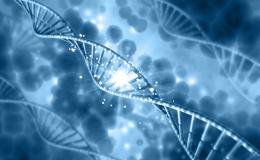Are Gynecologic Cancers Hereditary?
September 28, 2020
Gynecologic cancers originate in a woman’s reproductive organs, and include cervical, ovarian, uterine (endometrial), vaginal and vulvar cancers. An estimated 110,070 new gynecologic cancer diagnoses were made in the United States in 2018, and 32,120 deaths were attributed to these cancers the same year.1 In recognition of Gynecologic Cancer Awareness Month this month, we take a closer look at which gynecologic cancers can be hereditary, or can be passed from an affected parent to their child, and how individuals can assess and mitigate their gynecologic cancer risk.

The majority of gynecologic cancer diagnoses are considered sporadic, or not due to an inherited, adverse mutation (change) in a gene. However, a predisposition to some gynecologic cancers can be inherited, and the percentage of hereditary diagnoses differs between the five cancers. The prevalence of hereditary cancer and the genes associated with an increased risk of each gynecologic cancer are outlined below.
Ovarian cancer
Today, it is estimated that at least 23% of ovarian cancer diagnoses are hereditary, and the majority of these diagnoses can be attributed to adverse mutations in the BRCA1 or BRCA2 genes,2 two genes that are associated with hereditary breast and ovarian cancer (HBOC) syndrome and a significantly increased risk of both breast and ovarian cancer development. It is estimated that 1 in every 500 individuals, including men, harbor either a BRCA1 or BRCA2 mutation, and this probability increases to 1 in every 40 for individuals of Ashkenazi Jewish heritage. Additionally, individuals with Lynch syndrome, another hereditary cancer syndrome, have an increased risk of developing ovarian cancer. Lynch syndrome is associated with adverse mutations in five genes: MLH1, MSH2, MSH6, PMS2 and EPCAM. Peutz-Jeghers syndrome, caused by mutations in the STK11 gene, also increases an affected woman’s likelihood of developing ovarian cancer. Inheriting a single adverse mutation in either the BRIP1, RAD51C or RAD51D genes is also associated with an increased risk of developing ovarian cancer.3
Uterine cancer
As many as ten percent of uterine, or endometrial, cancer cases may be hereditary.4 Most forms of hereditary uterine cancer are attributed to Lynch syndrome. Inherited forms of uterine cancer are also associated with Cowden syndrome, a hereditary cancer syndrome caused by mutations in the PTEN gene. Peutz-Jeghers syndrome also increases an affected woman’s lifetime uterine cancer risk. Additionally, adverse mutations in the TP53 gene, which cause Li-Fraumeni syndrome, also increase a woman’s likelihood of developing uterine cancer.4
Cervical cancer
Most cervical cancers are caused by infections with high-risk types of human papillomavirus, or HPV. Currently, researchers suspect that the majority of familial cervical cancer cases may be attributed to an inherited condition that affects how effectively individuals clear an HPV infection, rather than an inherited gene mutation that predisposes an individual to cancer.5 Despite this, Peutz-Jeghers syndrome has been linked to an increased lifetime risk of developing cervical cancer in women.3 Future research may uncover additional genes associated with hereditary forms of cervical cancer. HPV vaccination against the high-risk types of HPV is the most effective prevention strategy for cancers associated with these types of HPV.
Vaginal cancer
HPV is present in most cases of vaginal cancer. Currently, there are no gene mutations associated with hereditary forms of vaginal cancer.
Vulvar cancer
Vulvar cancer is also associated with HPV infection. An increased risk of developing vulvar cancer is observed in a rare inherited disorder called Fanconi anemia.6 Fanconi anemia primarily affects the bone marrow and is characterized by decreased production of all types of blood cells. Adverse mutations in at least 15 genes can cause Fanconi anemia, including BRIP1 and RAD51C.7 Importantly, an affected child must inherit two mutated copies of a gene associated with Fanconi anemia to develop the condition. Currently, the frequency of Fanconi anemia in the population is roughly 1 in every 160,000 individuals worldwide.7
Genetic screening and counseling for patients with hereditary or suspected hereditary cancers can be advantageous for both the patient and the family and may be recommended. Regardless of the specific cancer, a child can inherit HBOC, Lynch, Peutz-Jeghers, Cowden and Li-Fraumeni syndromes from an affected parent of either sex, and the probability of inheritance is 50%. Establishing a causative mutation may allow physicians and genetic counselors to better assess cancer risk in both the patient and their family members, facilitate disease monitoring to detect cancers at earlier and more treatable stages and inform the use of preventative therapies and procedures in order to mitigate cancer risk. Additionally, cancers caused by certain gene mutations may respond differently to various treatments, and genetic screening can enable personalized treatment plans that minimize side effects and maximize effectiveness. The National Comprehensive Cancer Network and the Society of Gynecologic Oncology recommend genetic counseling and screening for all ovarian cancer patients regardless of family history, and all ovarian cancer patients that were screened for hereditary cancer mutations over three years ago should talk to their doctors about retesting because of advances in screening technology.8 The Kailos Genetics ExpedioTM Hereditary Cancer Screening test screens for adverse mutations in all of the genes mentioned specifically here, and many additional genes associated with other hereditary cancers. Click here to learn more about ExpedioTM or contact us with any questions you have regarding our genetic screenings.




